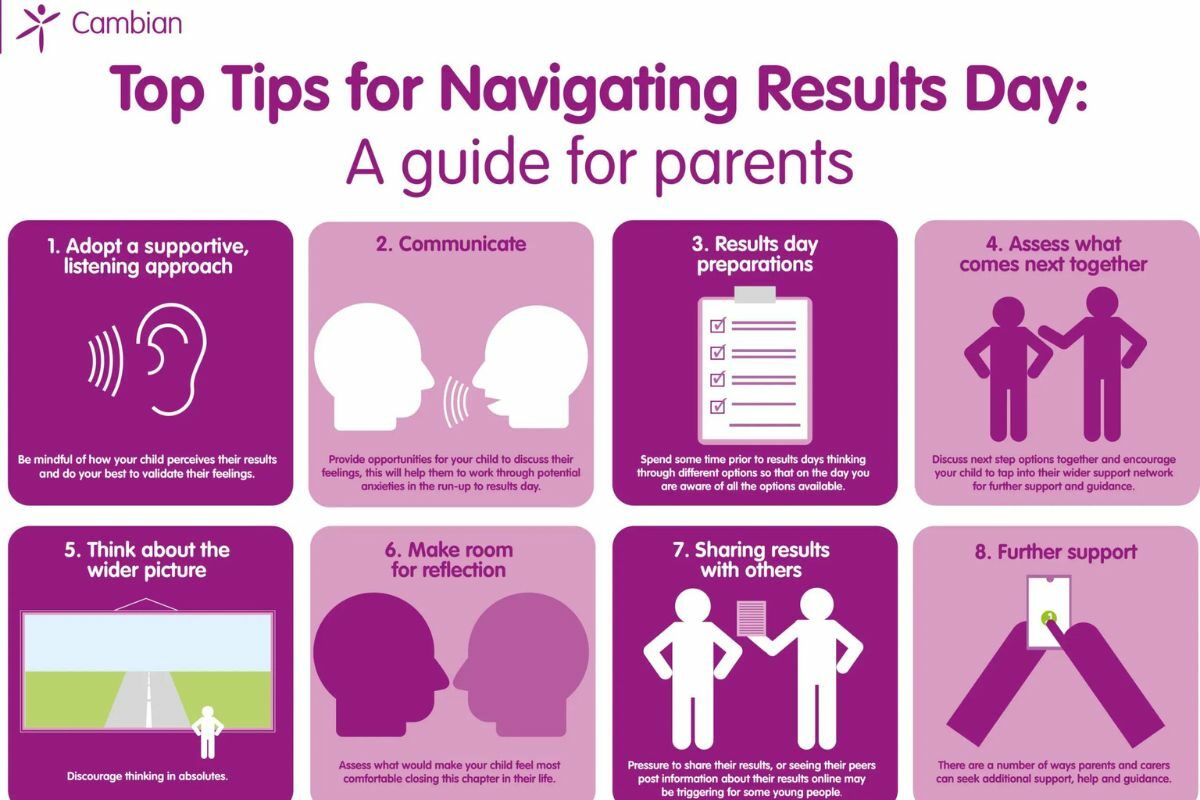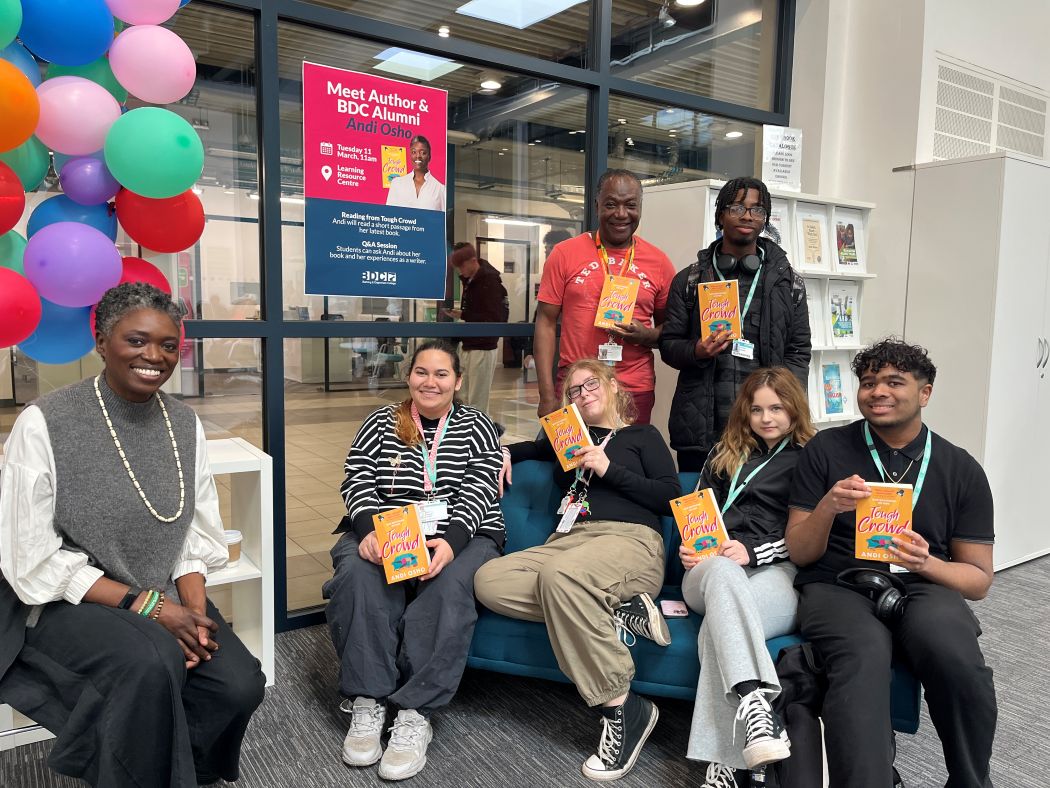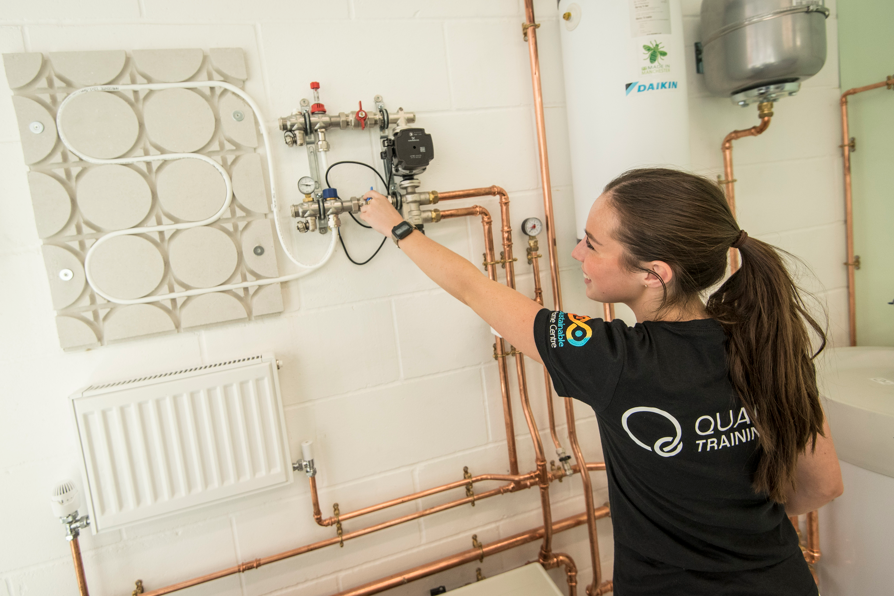Top Tips for Navigating Results Day: a guide for parents/carers

GCSE results day is a significant and often positive event for many young people and those around them that have supported them through exams. It can also of course be a stressful event for some and may, trigger feelings of anxiety or disappointment which may be difficult to manage, particularly for young people with additional or complex needs.
For some young people there has been disruption to their learning as a result of the pandemic which may also contribute to feelings of uncertainty and may mean young people require additional support to navigate the day.
At CareTech, we specialise in delivering individual programmes of learning to support young people with complex needs on their educational journey. Our person-centred approach is central to our philosophy and we believe that with the right care, support and collaboration, every young person can achieve their personal best.
As a parent or carer, you may be wondering how you can best support your child during this time. We consulted with some of our educational experts within our Cambian services and here are some of our top tips:
1. Adopt a supportive, listening approach
Regardless of the results your child receives, results day is an important moment in a young person’s educational journey and should be marked by celebrating the achievements made along the way. Be mindful of how your child perceives their results and do your best to validate their feelings. Avoid putting any additional pressure or sharing your own anxieties. Share in their happiness, empathise and support if they experience feelings of disappointment and emphasise that you are proud of them.
Every young person will have their own unique experience of education and learning as well as their own benchmarks for success, so avoid making comparisons with others. Focus your attention on the individual and their experience.
2. Communicate
Provide opportunities for your child to discuss their feelings, this will help them to work through potential anxieties in the run-up to results day and prepare them to start making decisions about the future. Many young people struggle to verbalise their feelings and may find the prospect of this conversation daunting or think you won’t understand. Ask them when they would like to talk about it and allow them time and space for them to approach you.
If your child is struggling to communicate face to face, perhaps suggest that they write down how they are feeling to kickstart a conversation. There are also digital tools available to help young people work through their feelings and log their thoughts, which may feel less intimidating to some. CareTech partners with Mind of My Own, an accessibility-driven, interactive app that allows the young people we support to record how they’re feeling in their own time and on their own terms on a platform they are familiar with.
Understanding how your child feels will allow you to best support them to make a tailored plan for their next steps.
3. Results day preparations
Feelings of anxiety can often become heightened in the days leading up to results day, but there are some practical and comforting things you can do to help alleviate this. Keep as much of the regular routine as your child wants, this could be ensuring they make time for their preferred hobbies, mealtimes and sleeping routine and encourage them to continue being involved in activities they enjoy.
Spend some time prior to results days thinking through different options so that on the day you are aware of all the options available. This will make your child feel less overwhelmed on the day and help them to regain a sense of control if they receive unexpected results.
It is important to be available on the day. Jenny Nimmo, Principal of Cambian Potterspury Lodge School in Northamptonshire, recommends that ‘young people and parents/carers attend the young person’s school/college to collect grades in person so that any queries can happen in person where staff and students can be supported.’
You may also want to identify additional contacts of support for the day. Does your child have a trusted friend, supportive teacher or a key worker who they could speak to once they receive their results?
4. Assess what comes next together
Allow space for the young person you are supporting to process their emotions and consider their options carefully before they decide how they would like to move forward.
Ensure your child feels validated in their emotional response and avoid phrases like ‘don’t be disappointed’ and ‘don’t panic’. Discuss next step options together and encourage your child to tap into their wider support network for further support and guidance.
Jenny also suggests that you make sure your child ‘confirms grades with their college/school/apprenticeship regarding any offers that they have for a September 2022 placement soon after results are known so that you are able to support with the next steps.’
If your child is unhappy with their results, or they did not achieve the grades they expected and they express that they would like to appeal, there is support available. Information on how to do this can be found on the Government website by clicking here.
5. Think about the wider picture
Discourage thinking in absolutes. It is common for young people to perceive results day as either a success or a failure which can negatively impact their mental health. Acknowledge how big and important the day feels now and also emphasise the bigger picture, and remind them that although their results may inform what they do next, they do not dictate what they can achieve in the future or define who they are.
Alison Priddle, Principal of Cambian Southlands School in Hampshire, adds:
“Keeping a sense of perspective is essential to success and building resilience. The key is to consider the big picture as well as the small details. Keeping an end goal in mind will help young people to stay motivated if their results weren’t what they were hoping for.
Keeping a sense of perspective is also helped by being flexible where possible. Supporting the young person to reflect, recognise the important steps they have made and enabling them to consider what they do next, all helps in building resilience.”
6. Make room for reflection
Results day can represent a significant transition in a young person’s life, which can be unsettling. Assess what would make your child feel most comfortable closing this chapter in their life. This may be finding opportunities for your child to say goodbye to teachers and peers face-to-face. It may be having some alone time to reflect on their experiences of school, their successes and things they have found challenging.
Making room for goodbyes and reflection will help your child move forward positively, process their memories of school and allow them to focus on their educational journey as a whole, not just as one day.
7. Sharing results with others
Pressure to share their results, or seeing their peers post information about their results online may be triggering for some young people.
Alison also points out that ‘It is likely that other family members and friends will want to know how your child has done in their exams. Thinking and discussing with the young person what and how they may wish to share the information is important.
Many will want to share their results on Social Media and some will find this challenging to manage. Encourage your child to talk about what they may have heard from others and how they may share things themselves.’
8. Further Support
There are a number of ways parents and carers can access additional support, help and guidance including from your child’s school, next education providers and by seeking independent advice.
Clare Gammons, Head Teacher at Cambian Wisbech School, has provided some reputable links about independent advice which you can find below:
Childline: Worrying about your results?
National Careers Service: Help with your exam results











Responses